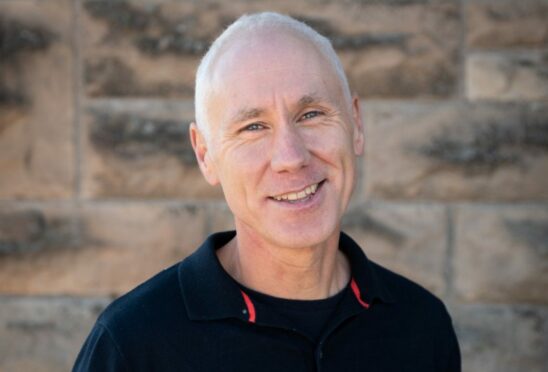
Giles Ruck is the chief executive of Foundation Scotland.
If you cast your mind back to our pre-pandemic days, who would have thought that a first responder during a global emergency could be someone living in your street, a member of your church or even the pub landlord?
The way communities and thousands of local groups, businesses and charities rallied around to deliver support was simply astounding.
As Scotland’s community foundation, we call these grassroots groups “the third sector heroes”.
For 25 years, we’ve championed local organisations across the country. We’ve always understood that local groups know best; they possess the knowledge, ability and agility to affect changes in their communities.
For 25 years, we have enabled these groups by providing funding and support so they can deliver the key services and facilities that benefit their communities best. This has never been more evident than during the pandemic.
From food banks to counselling services, community groups and charitable organisations experienced a sudden, overwhelming increase in demand for their services.
These groups had to quickly adapt and expand while maintaining flexibility to ensure compliance with continually changing restrictions.
The determination, innovation and resilience we witnessed among community groups was inspirational – they were truly the beating heart of Scotland’s response.
We distributed more than 1,400 grants from our dedicated crisis fund. These supported a huge variety of impassioned and creative activities.
From a group setting up an emergency food delivery service from a pub closed through lockdown, to a youth work charity delivering remote art activities to children without resources at home, to a project phoning the shielding elderly to make sure they had everything they needed.
These local responses in the heart of communities are what got us all through.
Communities knew what needed to be done and provided local solutions to the problems manifesting within their areas.
Our research showed the most overwhelming challenges were meeting isolated people’s immediate practical needs, tackling loneliness, and promoting positive living, wellbeing, and resilience.
The role of the community in responding to mental health needs has never been more evident. Of the £7.3 million in emergency funding we distributed, 73% (over £5m) went to support groups who were delivering essential help to protect physical and mental health, wellbeing, and safety. To this day, the demand for support in this area continues to rise and we will continue to deliver funding and support.
Our research also illustrated the positive impact funding had on local community infrastructure. More than half of grantees told us their funding had a significant impact on infrastructure in a range of ways.
Increased collaboration among community organisations, third sector partners and statutory bodies enabled far greater coordination of services and activities enabling more efficient and effective responses.
We’re thrilled to see that as charities and community groups continue to look outward, these practices look set to continue and grow as groups engage and collaborate with others to identify opportunities to work together, to co-design services, share resources and build stronger local networks.
Foundation Scotland distributed more than £32m in total across the last 18 months, exceeding all previous records.
Of course, none of this would have been possible without the generosity of individuals and businesses across Scotland.
As we look ahead, we will continue to work hard to reach and connect with new donors keen to distribute funds effectively at a local level so that together we can continue to deliver extraordinary support.

Enjoy the convenience of having The Sunday Post delivered as a digital ePaper straight to your smartphone, tablet or computer.
Subscribe for only £5.49 a month and enjoy all the benefits of the printed paper as a digital replica.
Subscribe